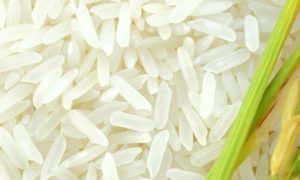Bangladesh : Impact of duty exemption: Wholesale prices of consumer goods decline

Wholesale prices of essential commodities in Chattogram’s Khatunganj market have declined due to import tariff cuts, lower global rates, and importers’ financial pressures. Edible oil, sugar, pulses, wheat, and cardamom saw notable drops. However, retail prices in local markets remain unchanged. Government duty reductions on essential imports, including rice, oil, and sugar, have boosted supply. Importers warn that currency depreciation may offset these benefits if the dollar continues to rise.
Wholesale prices of most essential commodities have begun to decrease in Chattogram’s Khatunganj wholesale market, one of the country’s largest wholesale hubs.
Traders said the price drops are due to tariff exemptions on imports, a reduction in international booking rates, and additional pressure on importers due to December’s bank closures, which have increased loan repayment burdens.
However, the retail market has not seen a significant impact. Prices in Kazir Dewri, Chawkbazar, and Momin Road in Chattogram had not changed in the last two weeks.
During a visit to Khatunganj market yesterday, it was observed that in the past two weeks, the price of edible oil had decreased by Tk450-Tk550 per maund, sugar by Tk200, pulses by Tk150-300, wheat by Tk100, and cardamom by Tk300.
At the market, the wholesale price was Tk6,350 for a 40.90-liter maund of soybean oil, Tk5,950 for palm oil, and Tk6,000 for palm super. Two weeks ago, soybean oil was priced at Tk6,800, palm oil at Tk6,500, and palm super at Tk6,550.
The price of sugar (37.32 kg per maund) dropped from Tk4,500 to Tk4,300, reducing the price by Tk5 per kg in two weeks. Similarly, chickpeas, which sold for Tk4,400 per maund two weeks ago, were priced at Tk4,250, a decrease of Tk4 per kg.
Mung beans, previously priced at Tk1,940 per maund, had dropped to Tk1,840, showing a decrease of Tk8 per kg. Imported lentils also saw a reduction of Tk5 per kg, from Tk3,740 per maund to Tk3,540.
The price of wheat had fallen by Tk3.5 per kg, from Tk1,400 per maund to Tk1,300. Cardamom had also decreased by Tk300 per kg, from Tk4,350 to Tk4,050.
Aman Ullah, owner of Aman Enterprise, a wholesaler in Khatunganj, explained that following the government change on 5 August, major importers, including S Alam, were unable to import essential goods, disrupting supply.
“The situation worsened after a nationwide flood, leading to a rise in prices of essential goods. To stabilise the market, the government exempted duties on six major essential goods, which gradually increased imports and supply, leading to a reduction in prices,” said Aman Ullah.
Taslim Shahriar, deputy general manager of Meghna Group, one of the country’s leading edible oil importers, said the price of goods in the market has decreased due to lower international booking prices and the duty exemption.
“However, the depreciating value of the taka against the dollar has increased pressure on importers. If the dollar’s value remains stable or decreases, consumers will benefit from long-term price reductions. However, if the dollar continues to rise, there is a risk of further price increases,” explained Shahriar.
Earlier, to encourage imports, the government reduced the rice import duty from 25% to 15%, regulatory duty from 25% to 5%, and completely removed the 5% advance tax. Similarly, the government reduced duties on edible oil imports in two phases, on 17 October and 19 November, bringing it down to just 5%.
The import duty on unrefined sugar, previously Tk38-40 per kg, was reduced to Tk23. Additionally, the government lowered import duties on onions, potatoes, and eggs, leading to a gradual decrease in prices of these items following the surge in imports.
To read more about Edible Oil News continue reading Agriinsite.com
Source : The Business Standard














